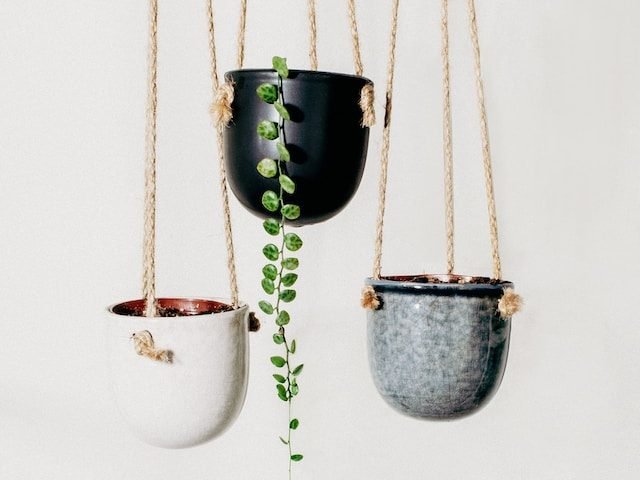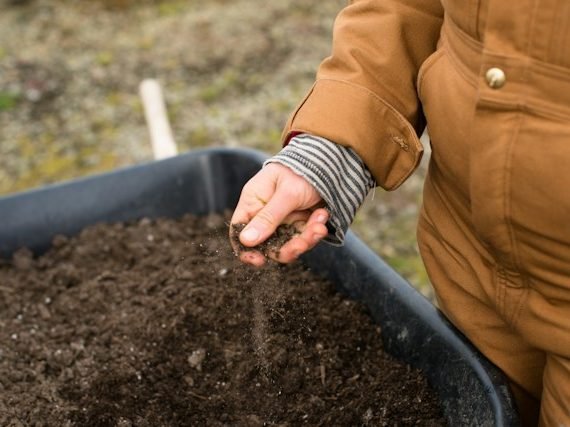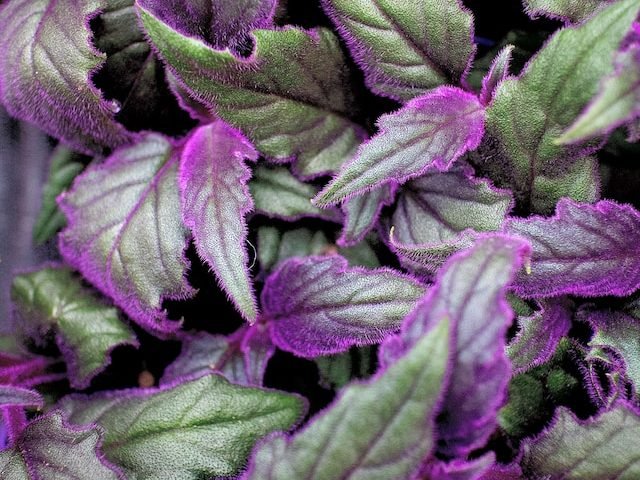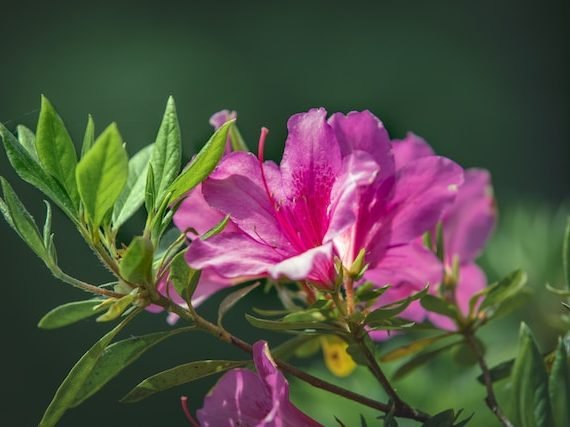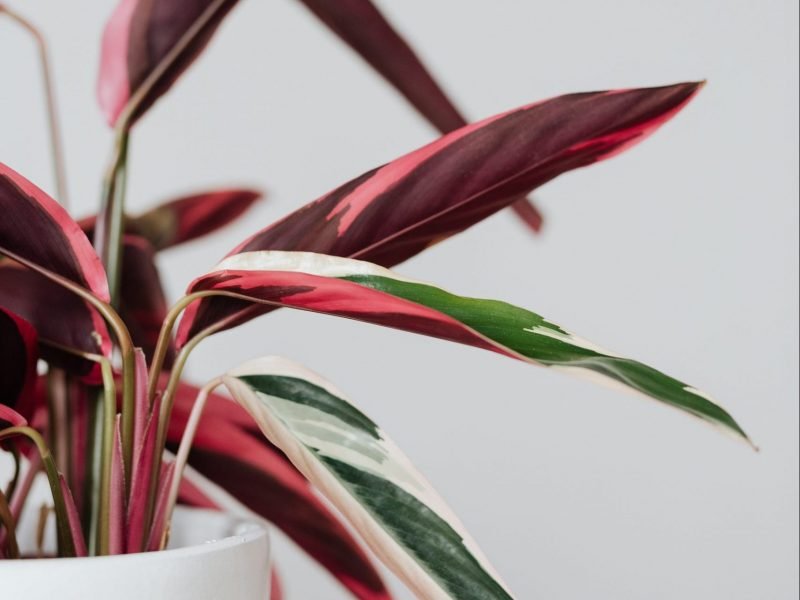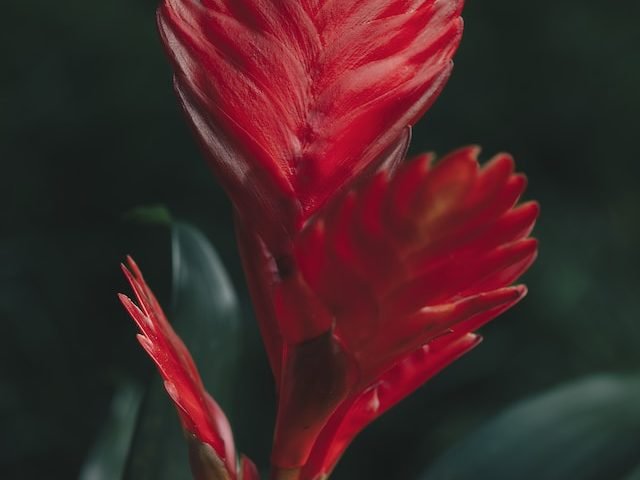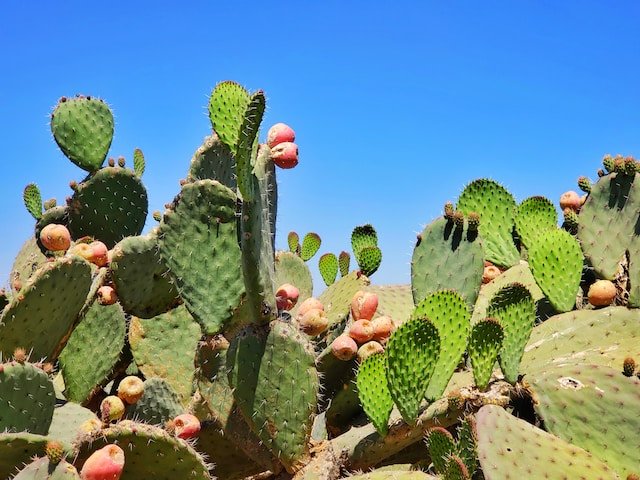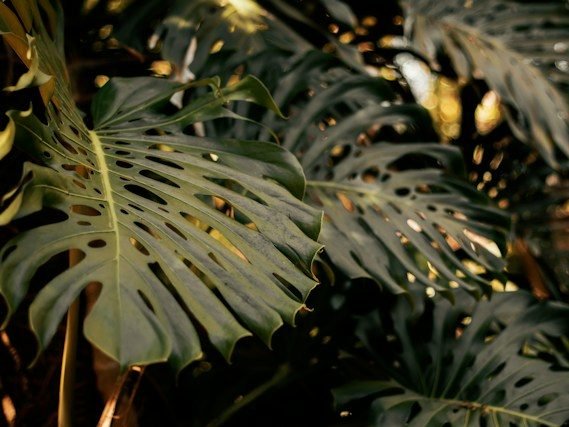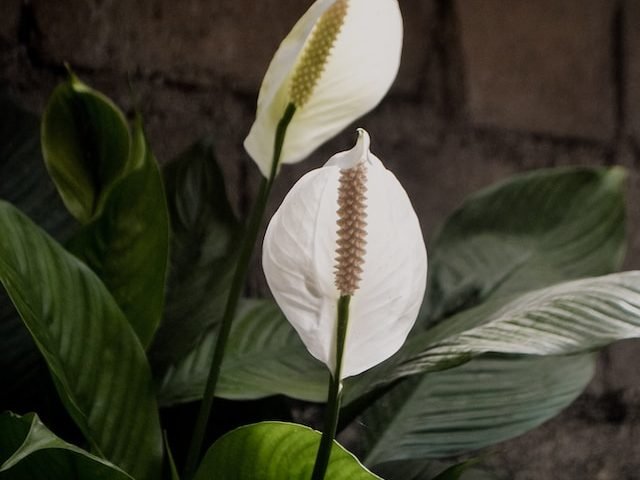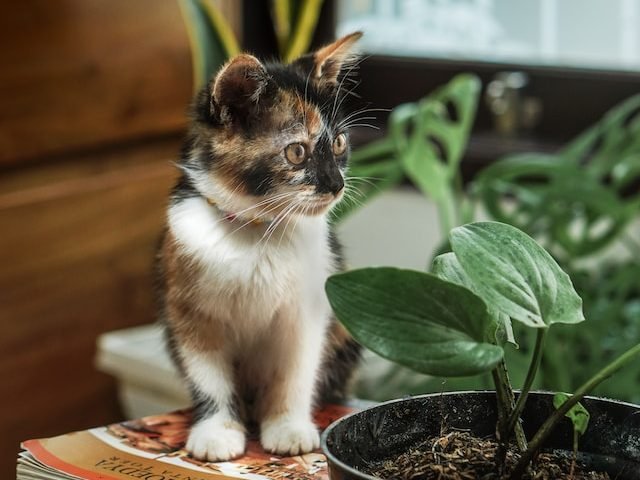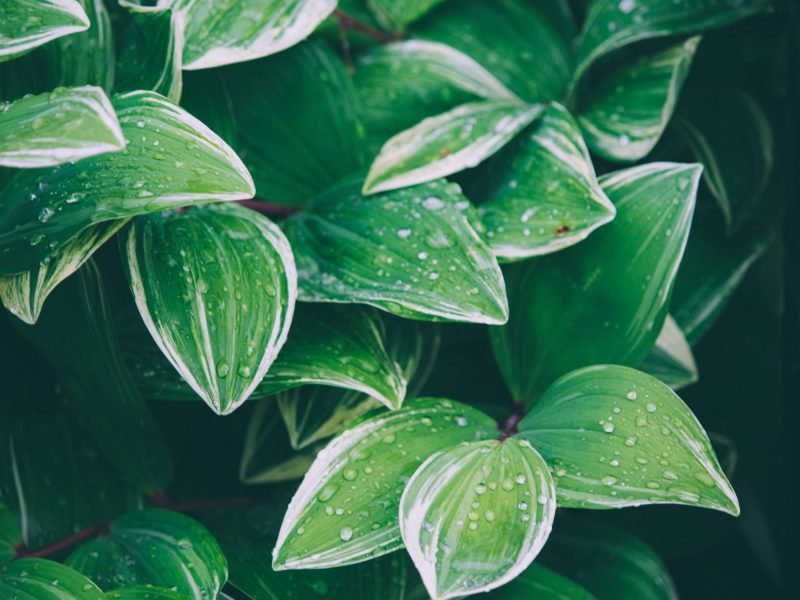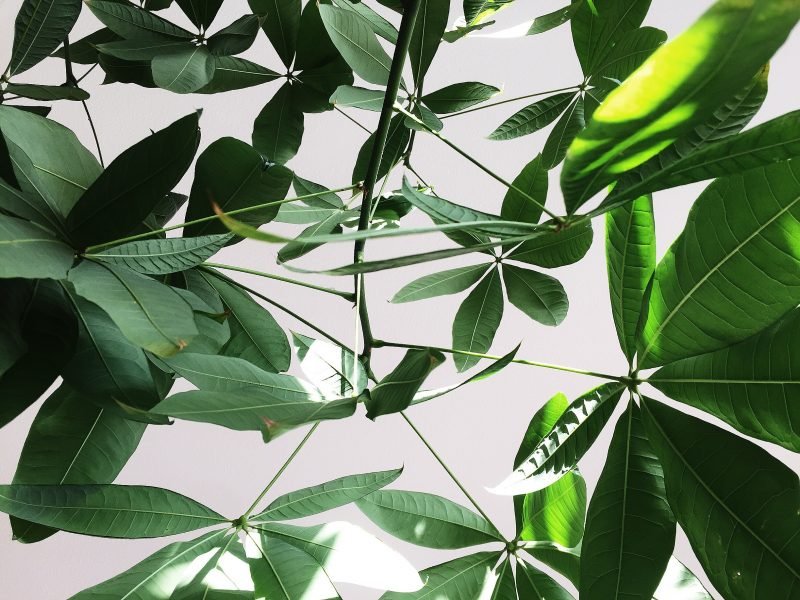
Also known as the Umbrella plant due to their unique leaves, the Schefflera is an incredible houseplant. They aren’t too difficult to take care of either; once you have found a perfect spot for it and a good watering routine, you shouldn’t encounter too many problems. However, your Schefflera may start losing leaves if it is not happy so look out for this warning sign. The main causes of Schefflera plants losing leaves are overwatering, poor drainage, not enough light, temperature issues and natural ageing.
Not enough light can cause your Schefflera to start losing leaves
Schefflera thrive in bright, indirect light and will struggle with anything less, often causing them to lose leaves. Insufficient light levels will start to cause your plant to shed some of the older leaves to keep their energy reserves for the new healthy growth. This is actually one of the most common causes of Scheffleras losing leaves but one that is hopefully quite an easy fix depending on the light situation in your home. Make sure your place them somewhere where they will receive several hours of bright but indirect sunshine and this should restore health pretty quickly.
One way to know if your Schefflera is losing leaves due to a lack of sunlight is whether you can see it reaching for the light. If your Schefflera looks as though it’s trying to grow towards the window, then this indicates that it might need more sunlight.
When looking for the perfect new spot for your Schefflera, make sure that it won’t be receiving too many hours of direct sunshine. In summer, when the sun is not only strong but also out for a larger proportion of the day, such intense light can dry out your Schefflera. This is why you want to find a spot with plenty of bright but indirect light.
Overwatering might be why your Schefflera is losing leaves
Schefflera are fairly hardy plants and won’t die if you overwater them once in a while. However, consistent overwatering will mean they start losing their leaves and their roots will start to rot. Schefflera need to be watered no more than twice a week in the hottest months of the year, and less frequently in autumn and winter.
Overwatering can very quickly lead to root rot which is very harmful to your plant. It will cause the plant to become unstable, causing it to lose leaves as well as turn brown, yellow and droopy. If you think that you may have overwatered your Schefflera it is best to replace the soil straight away rather than just sit and wait for it to dry up over time as you risk your Schefflera starting to die.
Make sure to check the moisture in the soil before you water your plant. This will go a long way to preventing root rot and stop your Schefflera from losing any more leaves. There are two really easy ways to make sure that it definitely needs water. First check the moisture at the top of the soil, if it is still damp then wait a few days before watering again. You can also lift up your Schefflera to check the weight of the plant before and after watering. You will then start to be able to gauge how heavy the soil is when it is in need of water. However, if your Schefflera is quite mature, then you might want to use a moisture meter instead of lifting your plant to avoid damaging your back or hurting yourself in some way. Moisture meters are great little affordable devices that will help you know when your Schefflera needs water.
We recommend propagating some of your Schefflera so that you can at least save some of the healthy parts of your plant and nurture them into mature plants.
If your Schefflera is losing leaves it can indicate drainage issues
Sometimes it may not be your watering schedule that is why your Schefflera is losing leaves, but the poor draining of the soil and pot. You can very easily increase the amount of drainage in your Schefflera by mixing in a small amount of perlite, this will make it far easier for water to flow through and out of the drainage holes of your pots (you should also check to make sure your pots have drainage holes). Another easy step is to add a few small stones or pebbles to the bottom of your pots, this helps in making sure that the drainage holes are never blocked by soil or any loose debris.
Although clay or terracotta pots can be a little bit more expensive or breakable, their upsides are much more than just the aesthetic and they can really help prevent your Schefflera from losing any more leaves. The clay they’re made of is permeable which means that some of the water in your soil can evaporate through the sides of the pot. This isn’t the case for the plastic pots that most use, which instead hold in every single drop of moisture.
This means that if you accidentally overwater your Schefflera a couple of times, there is nowhere for that excess moisture to go. Instead, it will sit in the pot, rotting the roots. So sometimes it is worth investing a little more to make sure that the roots of your Schefflera are not sitting in too much moisture, causing your plant to continue losing leaves. Terracotta pots look great too, so there’s really no downside.
Temperature issues might also be causing your Schefflera to lose leaves
Another reason why your Schefflera may be losing its leaves is due to inconsistent temperatures. If your plant is getting too much sunlight, it may cause it to overheat which can cause shock and leaf drop. This often happens if your plant is directly by a south-facing window (in the northern hemisphere) so be careful that it is not receiving too much direct sunshine.
If you’re not already, make sure to open your windows every now and then to make sure that the air in your room is circulating properly. This reduces the risk of hotspots forming in the room where your Schefflera is growing. The ideal temperature is between 18°C – 24°C, so it shouldn’t be too difficult to keep in a good range.
Just as warm air can be harmful to your plant, cold drafts can also damage its health, particularly in winter. Make sure your Schefflera isn’t placed next to a particularly drafty window or door. Whilst this won’t kill your Schefflera in one night but over time a constant stream of cold air can be quite damaging to your Schefflera.
But it’s not just cold drafts from outside that you need to worry about as your Schefflera might be losing leaves in summer due to proximity to air conditioning units or vents. Whilst the cool air might be refreshing for you, it can be quite damaging to your houseplants. Not only can it cause your Schefflera to go into shock and cause the plant to freeze in extreme cases, but it also means that the potting mix will take longer to dry out, increasing the risk of root rot.
You can always pick up a digital thermometer to check the temperature to stop your Schefflera from losing any more leaves.
Natural ageing can cause your Schefflera to lose leaves
As your Schefflera matures, it may occasionally lose a lower leaf as a natural sign of ageing. This is absolutely nothing to worry about but make sure that you keep track of how many leaves have dropped and how often this is occurring. If you feel your Schefflera is losing too many leaves, double-check the environment around your Schefflera as it could be a sign of one of the issues detailed above.
There is no harm in giving the soil and roots a once-over to check for signs of root rot and keep an eye on any changes in light or temperature that may be affecting its health.
It’s important to monitor the rate at which your Schefflera is losing leaves and compare that to the rate at which it is growing new healthy ones. If it begins to lose more leaves than it is producing, then this is a sign that something isn’t quite right.
If your Schefflera is losing leaves due to natural shedding, then you’ll also notice that the ones that are falling from your plant are usually the lowest, smallest leaves. If your Schefflera is losing some of its newer and larger leaves, then this indicates a more serious issue.
Those are the most common reasons why Schefflera plants begin losing their leaves. It can be quite a serious issue if your plant is losing more leaves than it is growing as at some point it will die. This is why it’s important to act quickly to ensure that you’re able to diagnose and start fixing the issue. Moving forward, keep a close eye on your Schefflera as this will help you spot any issues early, giving you the best chance at getting your plant back to full health.
To learn more about how to keep your plant thriving, check out our Schefflera care guide.



